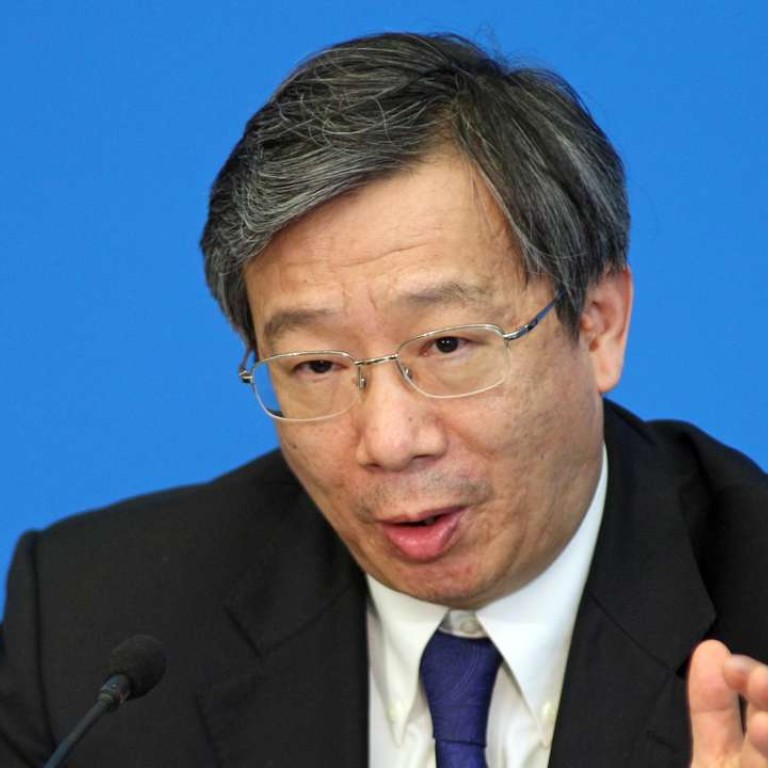
China’s central bank sends dovish sign on liquidity as US Fed firms on rate rise
People’s Bank of China resurrects 14-day reverse repos to inject billions into the banking system
China’s central bank has sent a dovish signal on liquidity to calm market concerns, dusting off a policy tool to inject cash into the system amid hints from the US of a rate hike.
People’s Bank of China deputy governor Yi Gang assured the market on Friday that Beijing would keep sufficient liquidity in the banking system with its newly restored 14-day reverse repurchase agreement, a tool to channel funds to banks.
I believe the case for an increase in the federal funds rate has strengthened in recent months
The assurance came hours before US Federal Reserve chief Janet Yellen said: “In light of the continued solid performance of the labour market and our outlook for economic activity and inflation, I believe the case for an increase in the federal funds rate has strengthened in recent months.”
The Fed last raised rates in December and another is expected this year, which may draw capital back to the United States, draining liquidity in other markets, including China.
A surprise return of the 14-day reverse repo on Wednesday caused a stir in China’s interbank market. The PBOC last used the instrument in February amid serious capital outflow pressure.
Observers were divided over whether the 14-day term – longer than the usual seven-day term – signalled a tightening or loosening in monetary policy.
But as the PBOC injected 180 billion yuan (HK$210 billion) into the market over the last few days via the tool, the balance tipped in favour of loosening.
Using repos on a day-to-day basis could also ease pressure on the PBOC to use blunter tools such as cuts to benchmark interest rates or the amount of cash banks must hold in reserve.
Beijing is alert to the growing risks of the asset bubble
“Beijing is alert to the growing risks of the asset bubble and it is very cautious against triggering strong expectations in the real estate market via cutting interest rates or reserve ratios,” Wang Tao, chief China economist with UBS in Hong Kong, said.
The central bank has several, sometimes conflicting, policy objectives. It has to keep monetary policy accommodative at home to help arrest a deepening slowdown, but must also make sure it does not worsen asset bubbles, increase debt levels or add pressure on the yuan to depreciate.
The PBOC’s position is further complicated by the prospect of a US rate hike in December, and more possibly on the way.
Yi said the 14-day reverse repo would give the PBOC “an additional option” to intervene more often to smooth out differences in interbank borrowing and lending.
“The central bank will continue to use open market operation tools and others to ensure sufficient market liquidity and keep a stable market,” Yi said.
Stephen Innes, a senior trader at Oanda in Singapore, said: “I do not view this as a change in monetary policy, but rather nudging borrowers towards longer-term funding and perhaps the first stages of implementing a transparent funding band.”
Chen Xingdong, chief China economist at BNP Paribas in Beijing, said the tool would help to dampen the market’s obsession with shorter-term products.
Additional reporting by Enoch Yiu


